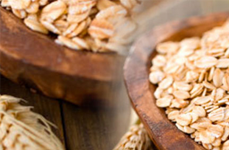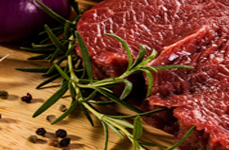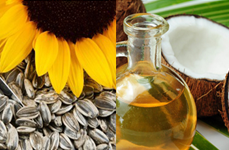Turmeric is a plant in the same botanical family as ginger. It’s native to southern Asia, but turmeric is grown in a few other warm, humid climates around the globe. Like ginger, it’s the tuberous shoots (rhizomes) of the plant that are used in foods and health supplements. The powdered turmeric you find in the spice aisle is made by boiling, drying and finely grinding the roots of the turmeric plant.
Most people think of turmeric as the “curry spice” and mistakenly think turmeric is spicy. Turmeric gives curry its signature, yellow color and distinct flavor, but it isn’t actually spicy. Turmeric is also added to mustards, pickles and relish, and it’s sometimes used as a substitute for saffron.
But aside from lending color and flavor to some of our favorite foods, the potential health benefits of turmeric are truly impressive. Research and historical usage shows turmeric may provide relief and support to our bodies in many ways.
History of Turmeric Use
Turmeric has been used in medicines and as a culinary spice for nearly 4,000 years, dating as far back as the Vedic culture in India, where it also held religious significance. An Ayurvedic text dating back to 250 B.C. mentioned its use for relief from digestive disturbances related to spoiled food; plus, other cultures use turmeric for digestive health and liver support, even including it in lotions and creams as a skin tonic.
Over the last 25 years, modern medicine has increasingly acknowledged the importance of turmeric as well, particularly the benefits of curcumin, a well-known and frequently studied phytonutrient in turmeric. Curcumin, which is found in turmeric, is a powerful antioxidant and can help support heart, cardiovascular and joint health.
What is Turmeric Good for?
Turmeric for Memory, Mood and Attention
Exciting research out of the University of California (UCLA) revealed that curcumin supplements may have a positive impact on cognitive health – supporting memory, attention and mood in healthy, middle-aged or older adults. The study was a double-blind, placebo-controlled trial over a period of 18 months, focusing on 40 adults that had complained of having memory-lapses prior to the study.
At the conclusion of the study, adults who took curcumin supplements (90 mg twice a day) showed a 28% improvement on memory tests, as well as improvements in mood and sustained attention. The type of curcumin used in the study was a highly-absorbable form of curcumin, which is 27 times more bioavailable than standard curcumin.
We will continue to provide updates on the potential benefits of curcumin for cognitive health as new studies emerge.
Turmeric and Digestive Health
If you suffer from digestive or gastrointestinal issues, this healthy spice just might be the answer. Turmeric provides multifaceted digestive comfort and supports the lower gastrointestinal system.
• Turmeric for Bowel Disturbances - Turmeric can help relieve gastrointestinal discomfort from eating spicy or fattening foods. It can also help with gas, support digestion and calm abnormal muscle movements resulting from digestive issues. The potassium and magnesium in turmeric can help your body regain balance after a bout of diarrhea.
• Turmeric as a Digestive Aid - The vitamins, minerals, antioxidants, and phytochemicals in turmeric have a soothing effect on the gastrointestinal system and provide support for digestion. Turmeric can even help combat some queasiness and support internal cleansing. Herbalists have used turmeric for centuries as a liver tonic. Because of its digestive benefits, some people also use turmeric for weight loss.
Ways to Take Turmeric
Since it’s typically eaten with other ingredients in food, you might wonder — what does turmeric taste like alone? By itself, turmeric doesn’t taste that great. It has a pungent and bitter flavor, so if you eat it, it’s best combined with other flavors. But you wouldn’t eat most other spices alone either. Just imagine eating a mouthful of cinnamon powder vs. adding a sprinkle of cinnamon to your coffee!
Thankfully, there are plenty of ways to get turmeric benefits without adding it to everything you eat. Turmeric is available in supplements, extracts, teas and even as a coffee creamer!
There are a variety of turmeric supplement options available to suit your individual needs. Try Swanson Broad-Spectrum Ginger & Turmericis - a powerful synergistic combination for all-natural health. Both herbs are most commonly used as spices that enhance the flavour and taste of many dishes.
• Turmeric for Skin
Turmeric is good for your skin when taken as a supplement because of its antioxidant effects.
Do you have your own tips for using turmeric, or turmeric success stories? Share them in the comments below.























LEAVE A COMMENT :
Comments sort : Newest / Oldest / Most Upvoted